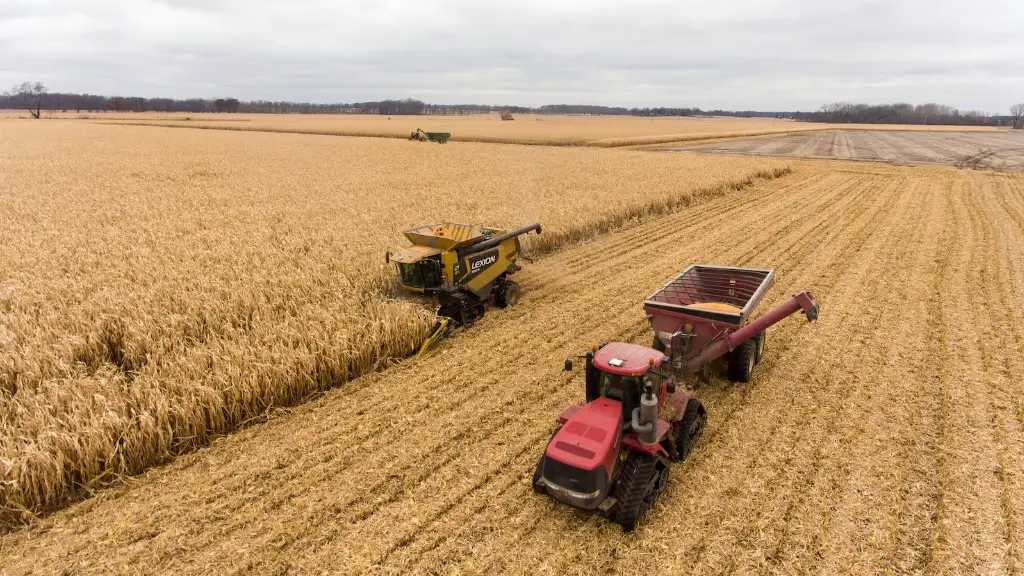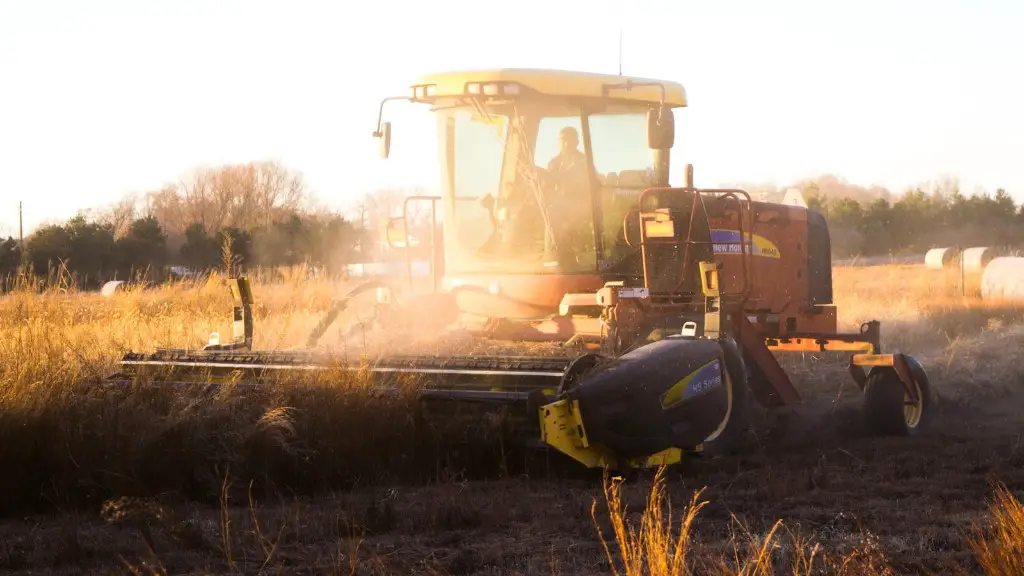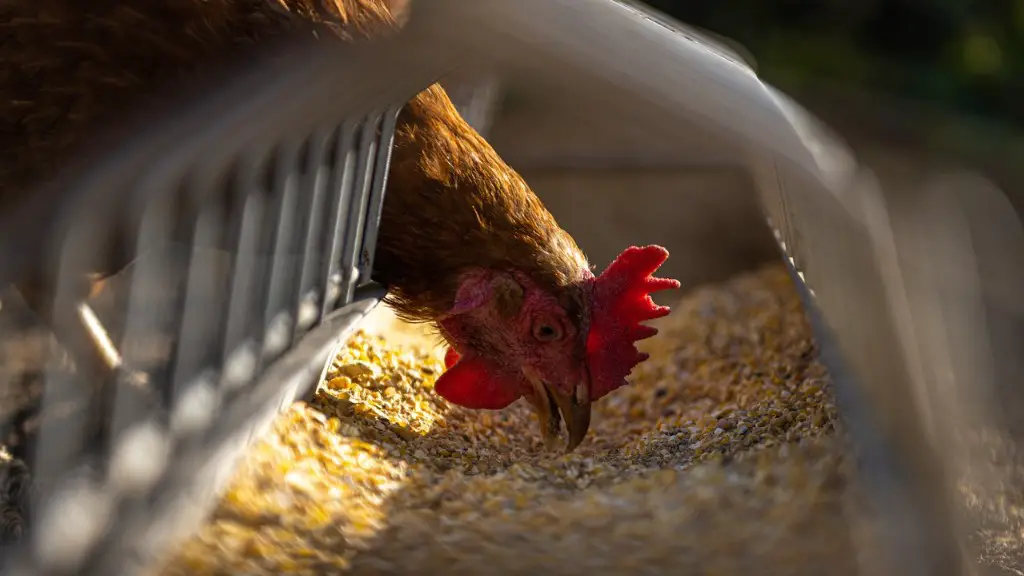Agriculture has played a key role in the development of human civilization. By domesticating plants and animals, early farmers were able to settle in one place and establish permanent settlements. This led to the development of complex societies and eventually civilizations. Agriculture allowed for the growth of cities and the rise of civilizations. It also allowed for the growth of food surpluses, which allowed for the development of trade and commerce. Today, agriculture continues to play a vital role in human society. It provides the food that we eat and the fiber that we wear. It is also a major source of fuel, energy, and raw materials. Agriculture has truly changed human life and continues to do so every day.
The Agricultural Revolution was a period of dramatic transformation in the way that food was produced. It marked a switch from hunting and gathering to a more settled, stable way of life based on the domestication of plants and animals. This change allowed humans to have a more reliable food supply, which led to population growth and the development of civilizations. Agriculture also had a profound impact on the environment, as people began to clear land for farming and alter the landscape to suit their needs.
How did agriculture change people’s lives?
Agricultural communities first developed approximately 10,000 years ago, when humans began to domesticate plants and animals. This process of domesticity allowed families and larger groups to transition from a nomadic hunter-gatherer lifestyle to one that was based in communities. This new way of living was much more stable and allowed for greater prosperity and growth.
Although more research needs to be done in this area, it is clear that farmers have an increased prevalence of many acute and chronic health conditions. These include cardiovascular and respiratory disease, arthritis, skin cancer, hearing loss, and amputations. Other health outcomes, such as stress and adverse reproductive outcomes, have been little studied in the agricultural workplace.
Did agriculture change society forever
The Agricultural Revolution was a time when people began to move from hunting and gathering to agriculture. This change changed humanity forever. Agriculture allowed for the domestication of plants and animals, which led to the development of civilizations. The Agricultural Revolution also allowed for the growth of cities and the rise of civilizations.
Agriculture is vital to the overall health of a country’s economy. It is an important part of any nation’s economic structure and gives job possibilities to a huge section of the people in addition to providing food and raw materials.
What are 3 reasons why agriculture is important?
1. Agriculture is the main source of raw materials for industries.
2. It is important to international trade.
3. It plays a big role in a nation’s revenue.
4. It provides employment.
5. It’s crucial to a country’s development.
6. It can help heal the environment.
7. It goes hand-in-hand with war.
8. Agriculture is a key sector in the economy.
9. It plays a significant role in food security.
10. It is a source of livelihood for many people.
Agricultural products are the raw materials for many industries, and without them, those industries may not be able to survive. This is because the basic needs for human survival—food, shelter, and clothing—are all dependent on agriculture for their production.
What was the major change caused by the agricultural?
The Norfolk four-course rotation was a key innovation of the Agricultural Revolution, greatly increasing crop and livestock yields by improving soil fertility and reducing fallow. The rotation consisted of four crops: wheat, barley, oats, and either turnips or clover. The turnips or clover would be grown to feed livestock, while the wheat, barley, and oats would be sold. The key to the success of the Norfolk four-course rotation was its ability to maintain soil fertility through the use of green manures and fallow periods.
The Agricultural Revolution was a turning point in human history, and laid the foundation for modern human life. The ability to stay in one general area and cultivate our own food made life much more manageable, and contributed to the growth of human society in terms of culture, technology, and more. This Revolution set the stage for all of the progress and advancement that we enjoy today, and we owe a great debt of gratitude to its participants.
How will agriculture change the future
The future of agriculture will be quite different from what it is today. With the help of technology, farmers will be able to increase their profits and efficiency while also being more environmentally friendly. Some of the technologies that will be used include robots, sensors, aerial images, and GPS. These advanced devices and precision systems will help make farms much more efficient and safe.
More abundant food supplies allowed for denser populations, and farming tied people to their land. Small settlements grew into towns, and towns grew into cities. Agriculture produced enough food that people became free to pursue interests other than worrying about what they were going to eat that day. This led to the development of civilizations and the rise of cities.
What are the 10 benefits of agriculture?
Agriculture is an important economic activity in Nigeria. It contributes to the country’s GDP, provides employment opportunities, and is a major source of raw materials and foreign exchange. Agriculture also plays a vital role in protecting the environment and preserving biodiversity.
Farming is a great way to improve your health and wellbeing. It is challenging and stimulating work which can provide a source of income in rural areas. Farm work can help develop younger generations and farming can help the environment thrive.
What are three impacts of agriculture
Agriculture is responsible for a number of environmental impacts, both positive and negative. On the positive side, agriculture can lead to soil erosion control and improved water quality. On the negative side, agriculture can contribute to climate change and deforestation.
The use of modern machinery in agricultural lands has lead to an increase in crop production, which in turn has led to an increase in the provision of raw materials to industries. This has been a boon for the economy, as it has helped to boost growth and create new jobs.
Why is agriculture important short answer?
Agriculture is the backbone of India’s economy and it plays a crucial role in the country’s development. Agriculture accounts for a quarter of the country’s GDP and it is the main source of income for a large section of the population. Agriculture also plays a vital role in ensuring the country’s food security and it produces a variety of industrial raw materials. Therefore, agricultural development is necessary for the country’s prosperity.
The advances in food production during the 2nd Agricultural Revolution had a profound impact on society. The increased food production led to better diets, longer life spans, and an increase in population. As population increased, so did the pool for workers in industry. The increased food production also allowed for the development of cities and the rise of civilizations.
What are 3 benefits of the Agricultural Revolution
The development of agriculture is known as the agricultural revolution. This is because the changes in agriculture that took place during this time had a radical impact on human society. They resulted in the invention of the first cities, allowed for industrialization, and caused the human population to grow massively.
The Agricultural Revolution was a period of significant Agricultural change that took place in various parts of the world in the 18th and early 19th centuries. The major changes were the shifts from wooden to iron ploughshares and from wheat to rice cultivation. These changes allowed for increased agricultural production and led to a more efficient use of resources. The Agricultural Revolution had a significant impact on the world economy and helped to spur on the Industrial Revolution.
Warp Up
The first evidence of agricultural practices date back to around 10,000 BCE with the domestication of plants and animals in the Fertile Crescent region. This allowed for a more settled lifestyle as people no longer needed to move around to find food. Agriculture allowed for the growth of civilizations and the development of complex social structures. It also had a major impact on the environment as people began to clear large areas of land for farming.
How agriculture changed human life is a long and complicated story. For the purposes of this essay, we will focus on how agriculture allowed for the rise of civilizations. Agriculture allowed for the domestication of plants and animals, which led to the development of cities and civilizations. Agriculture also allowed for the growth of food surpluses, which allowed for the development of trade and commerce. Agriculture has had a profound impact on human history and continues to shape the world we live in today.





